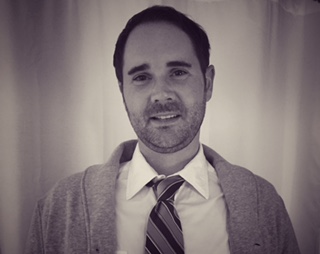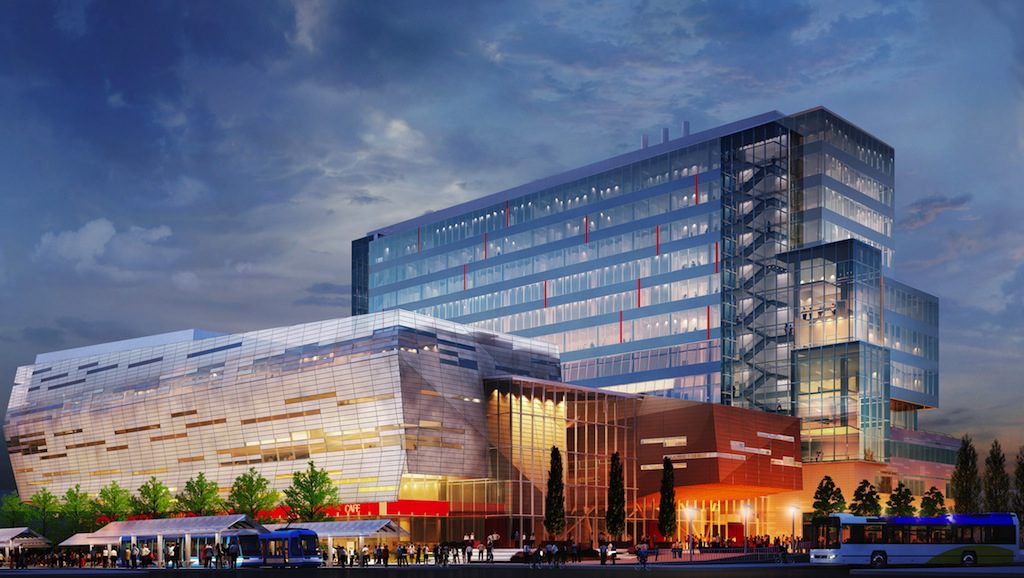 This conference update is brought to us by Joshua Finnell, Scholarly Communications Librarian at Los Alamos National Laboratory and 2015 DLF + FORCE11 Cross-Pollinator. Find him on Twitter @JoshuaFinnell.
This conference update is brought to us by Joshua Finnell, Scholarly Communications Librarian at Los Alamos National Laboratory and 2015 DLF + FORCE11 Cross-Pollinator. Find him on Twitter @JoshuaFinnell.
I was very humbled and honored to be selected as the first FORCE 11 + DLF Cross-Pollinator Fellow, and to have the opportunity to attend the FORCE2016 Conference in Portland, Oregon. Needless to say, the future of research communications and e-scholarship is undergoing rapid change, and spending a few days in conversation with a broad spectrum of stakeholders, from researchers to publishers to librarians, was both invaluable and enriching.
Appropriately set in the breathtaking Collaborative Life Sciences Building, an award-winning architectural feat of sustainable architecture and ecological design, the pre-conference workshops spanned the spectrum of the research life cycle, focusing on areas of intersection between technology and scientific practice.

During the morning session, I attended a workshop focused on amplifying scholarly communication discussions across academic conferences. Led by Jeroen Bosman, Bianca Kramer, and Joe McArthur, we collaboratively compiled a list of field-specific academic conferences where panels and presentations about open scholarship and data could be initiated.
After lunch, I participated in the innovations in biocuration workshop led by Melissa Haendel, Susan Gregurick, Emma Ganley, Allen Dearry, and Matthew Brush. This roundtable discussion quickly distilled the meta-level conversation of funding mandates and standards into a practical conversation about the difficulty of data management.
Talking of #data standards: there are over 600s in the life/biomedical science, see https://t.co/R7UlImUoRY @biosharing#force2016 #curation
— SAS (@SusannaASansone) April 17, 2016
Though very little consensus was formed around best practices, everyone at the table concurred that time management remains the invisible hand in the research data life cycle. Ultimately, data curation will always be iterative, and slowly evolve. Riding the Portland Aerial Tram to the Oregon Health Sciences University campus for the opening reception, I was left pondering the value of data management, and how best to communicate its importance to various stakeholders: funders, administrators, researchers, and the general public.
The next day, Steven Pinker, Cesar Hidalgo, and Christie Nicholson each gave riveting presentations that highlighted the importance of creating narratives, not noise, when communicating our scholarship to a broad audience. Whereas Pinker discussed the need for clear and concise writing, Hidalgo demonstrated the power of visualizing public data with datausa.io. Utilizing improvisation and humor, Nicholson demonstrated how improvisational theater can help scientists communicate directly and personally with their audience. Underscoring this multimodal approach to communication were the artists who interpreted and drew each presentation in real time throughout the conference.
My fav thing abt #force2016 pic.twitter.com/CaPgzYw0wU
— Abby Cabunoc Mayes (@abbycabs) April 19, 2016
Of course, it’s also important to critically reflect on our collective assumption that openness and sharing are an intrinsic good. Discussing her research on how indigenous peoples’ articulate the effects of climate change and their strategies for adaptation, Laura Foster demonstrated how our concepts of “openness” are still embedded in colonial traditions and histories of taking without rewarding. A conflict arose when her funder’s open access mandate conflicted with the Griqua peoples’ request to not share all the research findings. Building upon this idea, Cassidy Sugimoto’s keynote challenged us to reflect on rise of open and free scholarship just as women, indigenous peoples, and people of color are being recognized as scholars, a group whose work historically had no value.
Attending FORCE2016 not only gave me an opportunity to explore the depth and breadth of scholarly communications across disciplines, it also challenged me to engage with open scholarship in a global, cultural, and historical context. I am grateful to DLF for helping me find and build a dynamic and diverse peer group in FORCE11.
To access presentations, discussion notes, and all conference materials, visit: https://force16.figshare.com/
